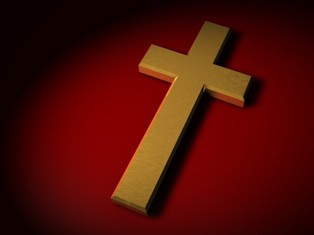Ecumenical Patriarch Bartholomew leads the world’s 300 million Orthodox Christians. Several weeks ago, he called out income inequality as the moral crisis of our time. He’s been one of the few world leaders to do so in such a consistent and forceful manner.
 While Pope Benedict used his holiday message to call for peace but to also renew his campaign against marriage equality, gay adoption, and abortion, Ecumenical Patriarch Bartholomew was striking a much different tone. He chose to focus his call to action on addressing income inequality and the concentration of political power:
While Pope Benedict used his holiday message to call for peace but to also renew his campaign against marriage equality, gay adoption, and abortion, Ecumenical Patriarch Bartholomew was striking a much different tone. He chose to focus his call to action on addressing income inequality and the concentration of political power:
We human beings have not been reconciled, despite God’s sacred will. We retain a hateful disposition for one another. We discriminate against one another by means of fanaticism with regard to religious and political convictions, by means of greed in the acquisition of material goods, and through expansionism in the exercise of political power. These are the reasons why we come into conflict with one another. […]
Moreover, economic competition is spreading globally, as is the pursuit of ephemeral profit, which is promoted as a principal target. The gloomy consequences of the overconcentration of wealth in the hands of the few and the financial desolation of the vast human masses are ignored. This disproportion, which is described worldwide as a financial crisis, is essentially the product of a moralcrisis. Nevertheless, humankind is regrettably not attributing the proper significance to this moral crisis. In order to justify this indifference, people invoke the notion of free trade. But free trade is not a license for crime. And criminal conduct is far more than what is recorded in penal codes. It includes what cannot be foreseen by the prescription of statutory laws, such as the confiscation of people’s wealth by supposedly legitimate means. Inasmuch, therefore, as the law cannot be formally imposed, the actions of a minority of citizens are often expressed in an unrestrained manner, provoking disruption in social justice and peace. […] let us encourage one another during this Year of Global Solidarity to make every conscious effort – as individuals and nations – for the reduction of the inhumane consequences created by the vast inequalities as well as the recognition by all people of the rights of the weakest among us in order that everyone may enjoy the essential goods necessary for human life. Thus, we shall indeed witness – at least to the degree that it is humanly possible – the realization of peace on earth. [emphasis in original]
Ecumenical Patriarch Bartholomew has hit on some key framing here. Income inequality is amoral crisis. From both a secular and a religious perspective, a society that finds value in increasing the gap between the rich and the poor is a society with little value at all.
We need more leaders addressing income inequality in such a direct manner, whether it’s in Congress or in churches and everywhere in between. We need to ensure that people understand that income inequality isn’t the symptom of a disease but the disease itself.
Ecumenical Patriarch Bartholomew has long used his international presence to draw attention to issues that need more action, including climate change. In fact, a few months before this address on income inequality, Ecumenical Patriarch Bartholomew issued an encyclical demanding action on climate change and saying that destruction of the planet is a sin. If you missed last month’sprofile of the “Green Patriarch” in The New York Times, it’s a must-read.
Despite the Ecumenical Patriarch’s consistent calls to action on the most pressing issues of our time — climate change and income inequality — in-depth news coverage of his campaign for a better world has been lacking. Few news organizations — especially not major cable organizations — choose to air his major speeches live or give them any coverage at all. Much news coverage over years has focused on the plight of the Ecumenical Patriarchate in Turkey, which is indeed newsworthy. However, coverage of the Ecumenical Patriarch shouldn’t only be limited to the fact that the Turkish government refuses to grant him, the Patriarchate itself, or Orthodox Christians in Turkey religious freedom. The message Ecumenical Patriarch Bartholomew is advancing is one of the most progressive and audacious messages spoken by a world leader on the international stage today. All audiences, secular and religious, deserve to hear about how we can come together and work for real progress on income inequality and climate change. Will the international press give the Ecumenical Patriarch’s call to action the attention it deserves?









